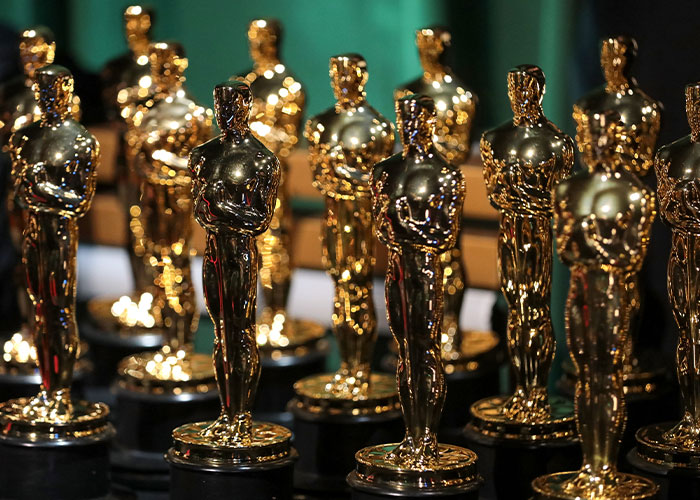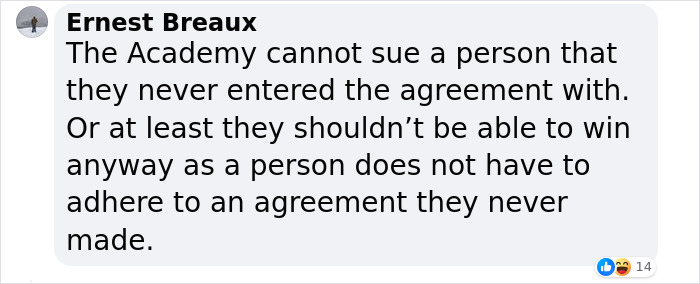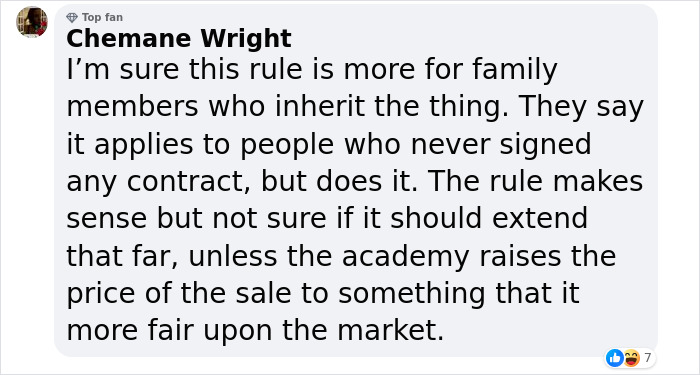There’s no denying that, in the film industry, winning an Academy Award is synonymous with prestige. Whoever collects the distinguished accolade inspires respect and admiration among colleagues and movie fans alike. Still, the award itself is only worth $1.
Last Sunday (March 10), Hollywood’s biggest night took place for the 96th time at the Dolby Theater in Los Angeles. While Cillian Murphy won the Best Actor award for “Oppenheimer,” Emma Stone’s performance as Bella Baxter in “Poor Things” earned her the Best Actress recognition.
Robert Downey Jr. left the ceremony with his first Oscar after winning Best Supporting Actor for “Oppenheimer.” The ceremony also marked the first-ever Best Director win for Christopher Nolan, 22 years after his first Academy Awards nomination.
A rule that dates back to 1951 states that Oscar winners can’t sell their awards on the open market without first offering to sell them back to the Academy for $1

Image credits: Al Seib/A.M.P.A.S.
What many viewers don’t know is that all winners have to sign a strict agreement after winning an award.
According to the Academy’s official site, its listed regulations state that winners can’t sell their Oscars on the open market without first offering to sell them back to the Academy for $1.
“Award winners shall not sell or otherwise dispose of the Oscar statuette, nor permit it to be sold or disposed of by operation of law, without first offering to sell it to the Academy for the sum of $1.00,” it reads.
The organization adds, “This provision shall apply also to the heirs and assigns of Academy Award winners who may acquire a statuette by gift or bequest.”
In other words, those who inherit the statuette from a family member or receive it as a present must also adhere to the rules.
The regulation was added in 1951, and the Academy initially asked for $10 if a previous winner or their heirs wished to let go of their award.
The provision also applies to those who inherit the statuette from a family member or receive it as a gift

In 2015, it became evident that the Academy took their regulations very seriously after the organization sued a man, Joseph Tutalo, after he auctioned off an Oscar that his uncle Joseph Wright had received in 1943 for his work on the film “My Gal Sal.”
Hollywood memorabilia auctioneer Nate D. Sanders offered to pay $79,200 for the statuette, which was awarded to Wright for his achievement in color art direction.
Ultimately, Los Angeles Superior Court Judge Gail Ruderman Feuer ruled in favor of the US Academy of Motion Picture Arts and Sciences.
The judge established that, even if Wright’s Oscar win predated the introduction of the rule, it still applied to his heirs because the filmmaker retained his membership in the organization, as per The Guardian.
For eight years, Wright could have sold his prize, but the judge noted he kept his membership in the Academy until his death.
The reason behind this regulation is that Academy Awards should be received only on the basis of merit, not purchasing power.
Dawn Hudson, the then-CEO of the Academy, told the court the organization “never intended the Oscar statuette to be treated as an article of trade,” and he argued that “sale would diminish the value of the Academy’s Award of Merit, signified by the Oscar statuette.”
In 2015, a judge ruled in favor of the Academy after the nephew of Oscar winner Joseph Wright tried to auction off his award for $79,200

The film industry executive added that the award was “diminished by distribution … through commercial efforts rather than in recognition of creative effort.”
Among the list of regulations, the Academy also establishes that the Oscar “is the copyrighted property and registered trademark and service mark” of the organization.
Therefore, “no reproduction, replica, drawing, photograph, derivative work or other copy of the Award of Merit statuette may be made or used by any manufacturer, advertiser, organization or individual except in accordance with these regulations.”
It further states that “Academy Award winners have no rights whatsoever in the Academy copyright or goodwill in the Oscar statuette or in its trademark and service mark registrations.”
Additionally, it mentions that the statuette “may not be used as a stage property or article of set dressing in any stage, television, video or motion picture production not produced by the Academy” and that “licensed exceptions will be considered under unusual circumstances.”
The nominees and winners of some of the 96th Academy Awards categories:
Best Picture:
Winner: Oppenheimer
American Fiction
Anatomy of a Fall
Barbie
The Holdovers
Killers of the Flower Moon
Maestro
Past Lives
Poor Things
The Zone of Interest
Best Actress:
Winner: Emma Stone – Poor Things
Annette Bening – Nyad
Lily Gladstone – Killers of the Flower Moon
Sandra Huller – Anatomy of a Fall
Carey Mulligan – Maestro
Best Actor:
Winner: Cillian Murphy – Oppenheimer
Bradley Cooper – Maestro
Colman Domingo – Rustin
Paul Giamatti – The Holdovers
Jeffrey Wright – American Fiction
Best Supporting Actress:
Winner: Da’Vine Joy Randolph – The Holdovers
Emily Blunt – Oppenheimer
Danielle Brooks – The Color Purple
America Ferrera – Barbie
Jodie Foster – Nyad
Best Supporting Actor:
Winner: Robert Downey Jr – Oppenheimer
Sterling K Brown – American Fiction
Robert De Niro – Killers of the Flower Moon
Ryan Gosling – Barbie
Mark Ruffalo – Poor Things
Best Director:
Winner: Oppenheimer – Christopher Nolan
Anatomy of a Fall – Justine Triet
Killers of the Flower Moon – Martin Scorsese
Poor Things – Yorgos Lanthimos
The Zone of Interest – Jonathan Glazer
Best Original Song:
What Was I Made For? – Barbie (Billie Eilish, Finneas O’Connell)
The Fire Inside – Flamin’ Hot (Diane Warren)
I’m Just Ken – Barbie (Mark Ronson, Andrew Wyatt)
It Never Went Away – American Symphony (Jon Batiste, Dan Wilson)
Wahzhazhe (A Song For My People) – Killers of the Flower Moon (Scott George)
Someone suggested that an exception should be made for those wanting to sell their award for charity















